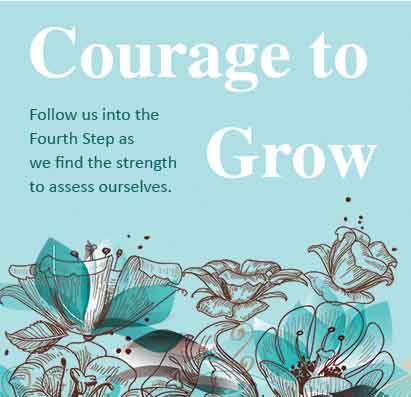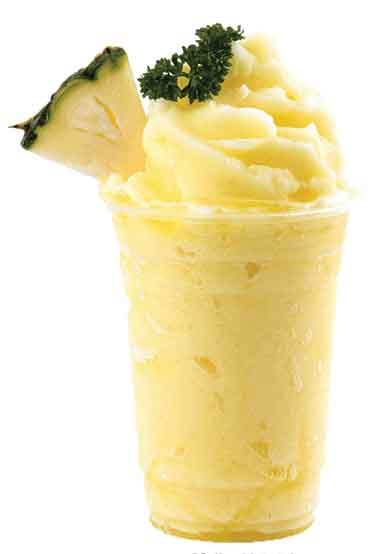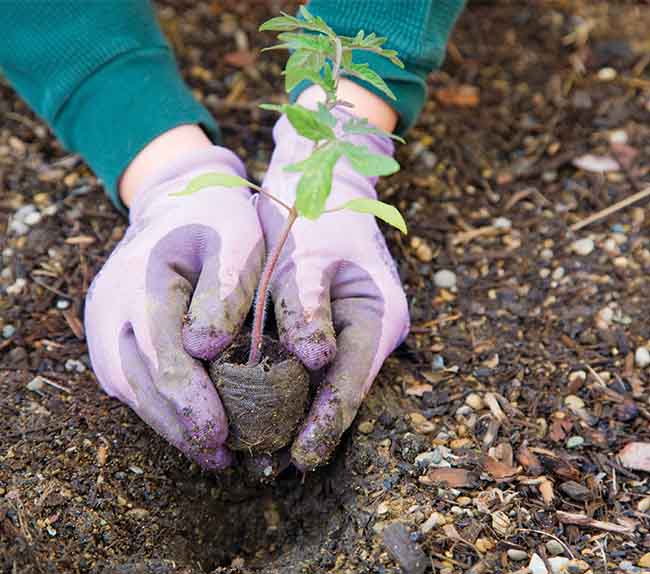VOLUME IV / APR 2013
Two Dreams is a wellness program led by Andrea G. Barthwell, MD, FASAM that provides individualized care for those who dream of recovering a healthy lifestyle.
NOTE FROM DR. B.
Please take a moment to consider donating to the Ruth Fox Memorial Endowment Fund.
The fund was established as a living tribute to the founding president of ASAM, Ruth Fox, MD.
Through this program, scholarships are awarded to physicians-in-training that allow them to attend the Annual Med-Sci Conference and the Ruth Fox Course. In addition, it provides excellent educational and networking opportunities for new physicians, and helps to build future generations of addiction medicine specialists.
For More Information and to Donate
VOLUME IV / APR 2013
Two Dreams is a wellness program led by Andrea G. Barthwell, MD, FASAM that provides individualized care for those who dream of recovering a healthy lifestyle.
NOTE FROM DR. B.
Please take a moment to consider donating to the Ruth Fox Memorial Endowment Fund.
The fund was established as a living tribute to the founding president of ASAM, Ruth Fox, MD.
Through this program, scholarships are awarded to physicians-in-training that allow them to attend the Annual Med-Sci Conference and the Ruth Fox Course. In addition, it provides excellent educational and networking opportunities for new physicians, and helps to build future generations of addiction medicine specialists.
For More Information and to Donate
STEP OF THE MONTH
Step 4: “Made a searching and fearless moral inventory of ourselves”
After you have accepted the first three steps, the next step is to create a fearless and moral inventory of yourself. It is a lot simpler than you might think. The hardest part of creating the inventory is bringing up the past—a past that might be painful, shameful, or worse—but bring it up we must. It is essential to do so because we must learn to learn from our mistakes.
A typical inventory begins with naming the people you have harmed and how you have harmed them, even before you were an addict. This part shows the harm your addiction caused those around you and it prompts you to think about how you could have done things differently so there would have been a better outcome. Another part of the inventory is where you can name the people who have harmed you.
The point of creating this part of the inventory is to forgive them and move on with your life. It is not healthy to hold grudges and dwell on the past. Even so, you do not necessarily have to associate with these people you have forgiven; surround yourself with people that are healthy for your recovery. After creating the inventory, you should hold on to it so you can go back and use it as determination as well as a future reference to not make the same mistakes.
NEWS HIGHLIGHTS
New Drug to Curve Opioid Dependence
Titan pharmaceutical is presenting Probuphine a new drug to curve opioid dependence at the ASAM Medical-Scientific Conference in Chicago April 25-28.
ASAM Calls for Defeat of Senate Marijuana Bill
ASAM and a former DEA Administrator called on the Illinois State Senate to defeat legislation recently passed by the Illinois State House that would legalize so-called medical marijuana in Illinois.
THE 3P’S
As the month of April comes to an end, it’s hard not to anxiously await the warm summer months ahead. Still, it is important that we take the time to bask in the glorious spring days that have yet to come. Spring is in full blossom! A true transformation cannot be rushed, so let’s all learn to dance in the rainy days ahead because we determine our own happiness and we owe it to ourselves to recognize that power and never give it to anyone or anything else. Remember the old adage: “April showers bring May flowers.”
Mental Peace
We can’t go through life playing the blame game—at some point, we have to admit to the role we have played in creating our own problems. The best years of our lives are the ones in which we decide our problems are our own. Admitting culpability and responsibility for the negative things in our lives will give us the courage to move forward to bigger and better things. If we can sit down, took a long deep breath, and think about the ways in which we have contributed to our own unhappiness, we can truly begin to turn negatives into positives. Having a sense of integritya great characteristic that allows us to know that we are strong individuals and can be honest to ourselves about where our lives are going and how we got to that point.
Physical Well Being
April is observed as “Alcohol Awareness Month”. This year’s theme for 2013 is, “Help for Today. Hope for Tomorrow.” In recognition of this month we must educate others about and raise awareness of underage drinking, alcohol abuse, treatment, and other related issues. It is important that parents talk with their children about consuming alcohol and the responsibilities and dangers that come along with making the decision to drink. We must take this time to raise awareness in all aspects of our lives such as, in our homes, at work, school, church, and anywhere else that people are willing to listen.
Enjoy this great non-alcoholic beverage to cool you off in the warm days ahead.
Personal Productivity
As the weather gets warmer and the days get longer, now is the perfect time to start that garden. As it turns out, gardening has many benefits; more people are picking up this hobby for the positive effects it has on their mental and physical well-being.
Gardening can help you reconnect with nature, relax, and find serenity. It’s also a conduit for self-expression; like a blank canvas, a garden is entirely your creation and can be an outlet for your creative urges. Finally—and deliciously—a garden can provide you with high-quality fruits and vegetables.
But before you just get out there and start digging, you will need a little background on body mechanics. Rarely do you hear about proper form in the garden, but it can be crucial to your physical health. Keep these tips in mind to save yourself from pain and strain, and to learn how to not waste excess energy.
Bending and Lifting.
When you lift heavy objects, squat and bend your knees, using your powerful thigh and buttock muscles, not your back muscles. When you bend over with your knees locked, you’re actually picking up 50% of your body weight in addition to the weight of the object you’re lifting. Bending your knees puts far less pressure on your back.
Did you know?
- Horticulture Therapy is a new area of study that has discovered viewing nature can reduce stress dramatically.
- Keep the object close to your body and center of gravity. This will cause much less strain on your back and will allow you to keep your arms close to your body and comfortably bent.
- Stand upright when working at ground level or when using long-handled gardening tools such as hoes, spades and rakes.
- Contract your abdominal muscles when bending over to lift something heavy. Keep your feet apart rather than close together.
- Garden in raised beds if possible. Move close to the object you are working on.
Did you know?
Gardening can reduce insulin resistance, a condition that could lead to metabolic syndrome or diabetes.
Ground Work
- Never over reach. Move to the job and keep moving to be close to your work.
- Keep your elbows partially bent, especially when doing resistive activities requiring elbow strength.
- Avoid twisting the forearms back and forth repeatedly. Consider using a weeding tool.
- Keep your forearms in a neutral position (i.e. thumbs up).
- Always face your work without twisting.
- Keep your wrists in a neutral position (i.e., handshake position). Avoid deviating your wrists up, down and sideways. This is especially important when working against resistance.
- Hold objects with a light grasp for a short period of time. Avoid a tight, sustained grasp.
- Squat with your heels on the ground.
- Keep your back relatively straight, feet apart about a foot and toes pointed outward.
- If you can’t squat with your heels on the ground, kneel, or semi-squat (i.e., one leg squatting with heel on ground and the other leg kneeling.) Or even better, use a garden stool or bench.
Did you know?
Weeding or cultivating can burn around 200 calories an hour, and clearing weeds or hauling rocks can burn as much as 600 calories per hour.
Carrying
- Use larger arm muscles rather than pinch-gripping heavy objects (like pots) with your hands.
- Hold them from underneath with your whole hand and keep the load close to your body.
- Use two hands for a balanced load, if possible. If not possible, trade off between your arms so that you don’t pull your body out of alignment, which stresses both the back and hips.
- Make more trips with lighter loads.
- Test the load before you carry it. If you need help, make sure you get it!
- Drop the load immediately if you find it’s too heavy.
Reaching
- Work below shoulder level whenever possible to avoid strain on your back and shoulders. Use a ladder to bring yourself up to the level you are working.
- When you have to work above shoulder level, work for no more than five minutes. Holding your arms up and looking up causes tremendous strain on your neck.
- Take a break to stretch your neck and back muscles and perform another activity for a few minutes before returning to over head work.
- Use both arms whenever possible.
Did you know?
Gardening can save money: The value of produce that you grow yourself is around 20 times the value of the material costs.
Other things to remember:
- Schedule jobs when it’s easier to do them. Moist earth is easier to dig in than dry, compact earth or soggy, saturated earth. Do something else if conditions aren’t right! Work in the shade; don’t force yourself to work in the sun on a hot day.
- Keep tools close at hand.
- Alternate tasks that require heavy or repetitive movement with tasks that are easier to do.
Did you know?
Eating fresh fruits and vegetables every day provide you with the essential nutrients that may protect you from cancer, high blood pressure, heart disease, and type 2 diabetes.
For admissions and all staff call us at: (504) 510-2331
© 2013 Two Dreams Outer Banks. All Rights Reserved.




